#whether leader was literally a farmer or not is up to interpretation
Explore tagged Tumblr posts
Text
"You like to think of yourself as a hero. A saviour."
"Not in as many words, but yeah! Maybe I do think I'm doing some good in this godforsaken world!" Leader bit out, struggling against their bonds.
Whumper scoffed. "Of course. But you know what I think? You're just a silly little shepherd, sending their lambs to the slaughter."
#whump#whump prompt#whumpee#whumblr#whump community#team whump#leader whump#team leader whump#leader whumpee#whether leader was literally a farmer or not is up to interpretation#dialogue prompt
77 notes
·
View notes
Text
Noah Primeval Preface Snark
If you enjoy the content you are reading, please like and follow the Center of Stupidity blog.
Summary: The author claims that his stories are rooted in "the theological and spiritual intent of the Bible." He also loves to scripture drop. The worst is yet to come.
In case anyone wants to read the original author’s preface in order to form their own conclusions, you can read it here.
In the event that this gets flagged, here is another place to read the chapter snark.
Inspired By True Events.
Keep this in mind, folks.
Because...
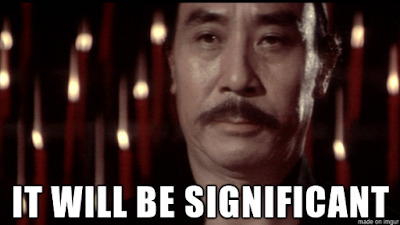
The story you are about to read is the result of Biblical and historical research about Noah’s flood and the ancient Near Eastern (ANE) context of the book of Genesis.
Translation: Because I did some research, it means that the novel is deep and elevated lit-ra-choor.
While I engage in significant creative license and speculation,
....
..................
......................................
That’s a verbose way of saying “I created a work of fiction.”
all of it is rooted in an affirmation of what I believe is the theological and spiritual intent of the Bible.
Even though there are countless Bible interpretations.
You found all of the "hidden truths"and know the "correct" way to read the Bible.

But silly me.
This is the same person who spews vitriol at movies that don't conform to his beliefs and wrote a paper called Calvinism and the Bible.
In the document, Godawa insists that "Calvinism is simply Biblical Christianity" and how the five points of Calvinism are “truly Biblical doctrines, then most of us western American Christians have been sold a bill of goods as to what the Gospel really is."
For those who are leery of such a “novel” approach,

Like some other writers, Godawa believes that he has a Wildean wit.
let them consider that the traditional Sunday school image of Noah as a little old white-bearded farmer

I gotta call bullshit.
The traditional Sunday school image depicted Noah as being a white man.
It didn't emphasize that he was an old farmer.
building the ark alone with his sons is itself a speculative cultural bias.
It's been a while since I've been to CCD…
But I don't remember them ever discussing at great length on how the ark was built.
They don't deal in the minutia.
Instead they focused on educating people about their faith.
And the whole "speculative cultural bias" comment is rich...
Coming from a man who preaches in his fiction and does evangelizing podcasts with his friends.
The Bible actually says very little about Noah.
Instead we get lengthy details about who begat who and what tribe they came from.
We don’t know what he did for a living before the Flood or even where he lived.
Which is why the Midrash aggadah was written.
According to MJL, Midrash aggadah interprets biblical narrative, exploring questions of ethics or theology, or creating homilies and parables based on the text.
For instance, one of the best known midrashes is the story about Abraham.
It states while Abraham was a young child in Mesopotamia, he was smashing idols.
This story suggests that God didn't randomly pick Abraham.
Instead, God knew that Abraham would be receptive to His voice.
How do we know whether he was just a simple farmer or a tribal warrior?
The answer?
We will most likely never know for certain.
And secondly, who cares? It is minutiae.
Oh wait.
The author is going to bestow us the answer.
Genesis 9:2 says Noah “began to be a man of the soil” after the Flood, not before it.

Genesis 9:2 says this:
The fear and dread of you will fall on all the beasts of the earth, and on all the birds in the sky, on every creature that moves along the ground, and on all the fish in the sea; they are given into your hands.
(This comes from the New International Version.)
And I checked two other translations: the King James Version [KJV] and the English Standard Version [ESV].
They are the same as the first.
The passage about Noah becoming a farmer comes from Genesis 9: 20
Noah began to be a man of the soil, and he planted a vineyard. [ESV]
Noah, a man of the soil, proceeded to plant a vineyard. [NIV]
And Noah began to be an husbandman, and he planted a vineyard. [KJV]
So in conclusion:
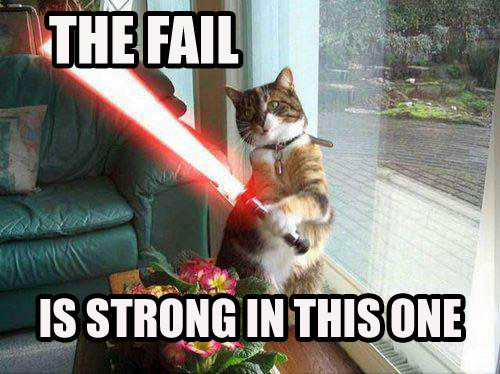
If the world before the flood was full of wickedness and violence,
Because they would all fight evil physically.
It's not like righteous men would ever combat evil by using their words or practicing non violence.
Noah would not have been that different from Abraham,
Or…
He could have been a prophet whose words inspired others.
Nobody knows for certain what Noah did prior to the flood.
who farmed, did business and led his family and servants in war against kings.
Man, Godawa is obsessed with the idea of righteous warriors.
We know very little about primeval history,

There is a newfangled thing called archaeology.
but we do learn from archeological evidence that humanity was clearly tribal during the early ages when this story takes place.
Um…
The previous line belies the rest of the sentence.
Where's the editor?
Yet, nothing is written about Noah’s tribe in the Bible.
We also don't know anything about Jesus' childhood.
Your point being?
It would be modern individualistic prejudice to assume that Noah was a loner when everyone in that Biblical context was communal.
Who ever said that he was???
Is Godawa just making up arguments so he can tear them down?
Noah surely had a tribe.
You already said that. Move along.
There is really no agreement as to the actual time and location of the event of the Flood.
And in other news…
Bears shit in the woods and the Pope is Catholic.
So B. Godawa lists some theories about when and where the Flood took place.
He thinks it is "Early Bronze Age Mesopotamian contexts" because of some passages in Genesis.
By the by... He doesn't mention any specific passages.
At some other time, I'll take a look at the appendix.
Because right now, I'm not in the mood to read an appendix that is about one hundred pages long.
The Bible also says Noah built the ark.
And now for the following news bulletin:
Adam and Eve lived in a place called the Garden of Eden.
Are we to believe that Noah built it all by himself?
Yes, if you take the Bible literally.
It doesn’t say. With his sons’ help? It doesn’t say.

But that very same book does say earlier that Cain “built a city” (some scholars believe it was Cain’s son Enoch).
Which scholars said that?
Because doing a quick Google search got me absolutely bupkis.
Instead, I got a bunch of websites that talked about Cain building a city and naming it after his son.
Are we to assume that he built an entire city by himself?
No lie… I had to check and see if Cain had a son named Enoch. (And he did).
Because after the bungling of a verse from Genesis, I wasn’t sure if this was another mistake.
As for Cain building an entire city single handedly? I’m sure Christian fundamentalists would respond with “yes”.
My response would be “no” followed by:
Who helped Cain to build a city? A lot of golems? Some demons? Or did he hire a lot of people in the nearby area?
If Cain just hired a bunch of people, wouldn't the idea of God only creating two humans [a.k.a. Adam and Eve] be false?
How did Cain get the materials to build a city?
How would Cain know which materials would be good for building a city?
And why did Cain want to build a city in the first place?

Ridiculous.
Who knew that with one word, such disdain could drip from a person’s tongue?
Cain or Enoch presided as a leader over the building of a city by a group of people,

Wait a tick…
Godawa previously said that it was Cain that built a city but some scholars believe it was Enoch.
And now he is stating that it could be Cain OR Enoch.
Does that mean that Godawa forgot what he wrote previously?
Or the man who sees himself as the Grand Poobah of Biblical Knowledge is finally admitting that he doesn’t have all the answers?
just as Noah probably did with his ark.
So in other words, Noah just sat on his ass and barked orders at people.
Because as we all know, that is a great leadership style.
One of the only things Genesis says about Noah’s actual character is that he was “a righteous man, blameless in his generation. Noah walked with God” (Gen. 6:9).
Now a normal person would interpret this to mean that Noah was a good person who conversed with God.
But Noah Primeval turns Noah into a Gary Stu. (By the way, this will be revealed in future chapter snarks).
The New Testament clarifies this meaning by noting Noah as an “heir” and “herald” of righteousness by faith (Heb. 11:7; 2Pet. 2:5).
ESV [English Standard Version] said Noah as a “herald of righteousness” while NIV and KJV described Noah as a “preacher of righteousness” (2 Peter 2:5).
While ESV, NIV, and KJV all described how Noah “became an heir of righteousness.” (Hebrews 11:7).
You might be thinking to yourself: What’s your point?
If we are to take into account what the Bible said about Noah… It describes Noah spreading God’s message (like a herald or a preacher). But it also adds that because of Noah’s faith in God, he “became an heir of righteousness.”
This differs from the depiction in Noah Primeval where Noah is the Chosen One from an ancient prophecy.
And that makes him superior to all the other filthy mortals along with slightly less perfect than Jesus.
The popular interpretation of this notion of “righteousness” is to understand Noah as a virtually sinless man too holy for his time, and always communing with God in perfect obedience.
But is this really Biblical?
If you mean, some people acting like sanctimonious hypocritical assholes, then I would loudly shout “Hell yes!”
Would Noah have never sinned? Never had an argument with God?
Personally, my answers would be “no” for both questions.
But in this novel, when Noah isn't acting like a bratty teenager, he acts like a smug douchebag.
Yet the reader is supposed to see Noah as a paragon of virtue.
Never had to repent?
In order to repent, a person must have genuine remorse for their actions. It also requires accountability.
It doesn't entail a person rending their garments melodramatically until they are completely naked and then yelling at the top of their lungs. I'm looking at you, Noah Primeval.
As a matter of fact, the term “righteous” in the Old and New Testaments was not a mere description of a person who did good deeds and avoided bad deeds.
Maybe it is because the writers of the Old and New Testament know that good people are not perfect. They make mistakes and take ownership of their actions.
Righteousness was a Hebrew legal concept that meant, “right standing before God” as in a court of law.
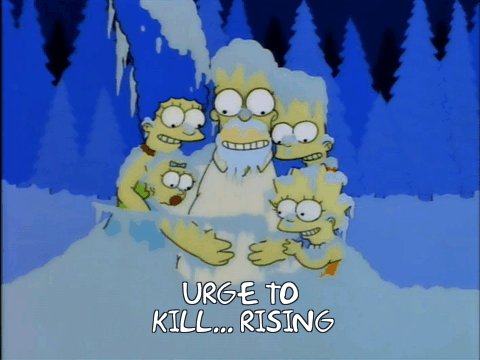
What makes me so fucking disgusted is that Godawa has no qualms with cherry picking things from different mythologies and whatever doesn’t suit his narrative is either discarded or depicted as being malevolent lies.
It carried the picture of two positions in a lawsuit, one “not in the right,” and the other, “in the right”
You mean a lawsuit involves two sides: the prosecution and the defense?

or “righteous” before God.
And this series doesn’t hesitate to jump on a soap box and shout at the top of their lungs.
It was primarily a relational term.
*Sigh*
What’s next?
Are we going to define the definition of is?
Not only that, but in both Testaments, the righteous man is the man who is said to “live by faith,” not by perfect good deeds (Hab. 2:4; Rom. 1:17).
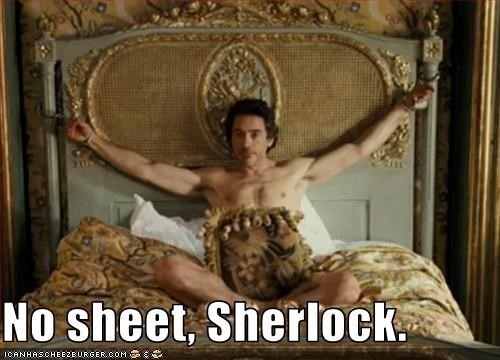
So righteousness does not mean “moral perfection” but “being in the right with God because of faith.”
In other words, ice is cold and fire is hot.
….
This is leading up to rant filled with gratuitous Bible citations.

What’s more, being a man of faith doesn’t mean a life of perfect consistency either.
You mean good people aren't perfect??? Thanks for notifying me Brian Godawa!
Look at David, the “man after God’s own heart” (Acts 13:22), yet he was a murderer and adulterer and more than once avoided obeying God’s will. But that doesn’t stop him from being declared as “doing all God’s will” by the apostle Paul.
At risk of sounding like a broken record, good people are not perfect.
Which is why repeating the obvious makes a person look like a blithering moron.
Or consider Abraham, the father of the Faith, who along with Sarah believed that God would provide them with a son (Heb. 11:8-11).
What does this have to do with anything? Is Godawa trying to dazzle the reader with how many Bible verses he can quote?
Yet, that Biblically honored faith was not perfect, as they both laughed in derision at God’s promise at first (Gen. 17:17; 18:12).
I guess Godawa never heard of a thing called context.
According to the Zohar, Sarah laughed because her son would have a feminine soul.
The Zohar also states that a soul from the "feminine world" cannot have children.
Sarah knew this and laughed because this contradicted God's promise to continue Abraham's bloodline.
God had to remind Sarah that He has the power to do anything. Which means He can turn a feminine soul into a masculine one.
And because Godawa loves to scripture drop, he cites additional examples from the Bible when people either argued or complained to God.
The very name Israel means “to struggle with God.”
I normally don't split hairs but considering the fact that the author fancies himself to be a scholar…
The word Israel means "God contends".
An alternate translation is "He Retains God"or "God Is Upright".
All the heroes in the Hebrews Hall of Faith (Heb. 11) had sinful moments, lapses of obedience and even periods of running from God’s call or struggling with their Creator.
According to the NIV translation, it commended the people for having a strong faith in God and how that faith allowed them to do what it is just. It does not give blow-blow descriptions of their spiritual struggles or a detailed accounting of all of their sins.
Now that I'm thinking about it… I have a sneaking suspicion that this is leading up to Godawa justifying his depiction of Noah.

It would not be heresy to suggest that Noah may have had his own journey with God
Well, duh.
Noah's spiritual journey would have started with baby steps.
It is not like Noah would be chummy with God the very second he was born. A relationship with God is developed during a lifetime.
that began in fear and ended in faith.

That's assuming that every person that started a relationship with God that said relationship was founded on distrust (which is fueled by fear) or the case of Noah Primeval, built on a foundation that is a passive-aggressive hate boner for the Almighty.
For some individuals, their spiritual journey never originated from animosity or distain because they always had faith.
In fact, to say otherwise is to present a life inconsistent with the reality of every human being in history.

I'll say it again.
Every person's spiritual journey with God is different.
To insist that every person's relationship with God originated from negative emotions is not based in reality.
To say one is a righteous person of faith is to say that the completed picture of his life is one of finishing the race set before him, not of having a perfect run without injuries or failures.

It is time for a writing exercise! Let’s take this wordy sentence and make it concise.
I'll go first.
The completed picture of a righteous person’s life is not a perfect run without injuries or failures but rather they finished the race set before them.
Now that I'm thinking about it …
This verbose sentence sounds like something that belongs in a fortune cookie.
Also, I find it odd that this little nugget of wisdom uses the gender neutral phrase “righteous person of faith” but then uses his | him pronouns.
Why am I getting the feeling that this is a subtle message that only a man can be a "righteous person of faith"?
Some scholars have even noted that the phrase “blameless in his generation” is an unusual one,
“They also think it is peculiar that the Flood lasted for forty days and nights. Why not eighteen or twenty-five? Is forty God’s favorite number or did He just pick it randomly?”
reserved for unblemished sacrifices in the temple.
Wait a minute.
So these scholars are stating that the phrase "blameless in his generation" is only used for animal sacrifices.
Which means Noah is likened to an animal sacrifice…

Which is totally different from Noah Primeval's depiction of Noah as a macho and virile warrior who is the Chosen One.
Also, it is really dodgy when someone only gives some citations or doesn't provide any.
This physical purity
…
The words "physical purity" just sent shivers down my spine.
Because when words like that casually enter into a conversation, it is not long before an argument is made in favor of eugenics.
takes on new meaning when understood in the genetic context of the verses
"Genetic context"?
I didn't know that words had DNA.
Flippant comment aside, all this talk of "physical purity" and "genetic context" prompted me to do a quick Google search of the following: Noah blameless in his generation animal and it brought up a thread asking if Genesis 6:9 is referring to Noah's genetic purity.
before it that speak of “Sons of God” or bene ha elohim leaving their proper abode in heaven and violating the separation of angelic and human flesh (Gen. 6:1-4; Jude 5-7).
Um…
This is sort of correct.
Genesis 6:7-4 is about the Sons of God marrying beautiful human women and having children called Nephilim. Yet it also states that humans will live to be 120.
While Jude 5-7, the writer reminds the reader that God delivered his people out of Egypt and destroyed the non-believers. They also said that the angels who "did not keep their positions of authority but abandoned their proper dwelling" along with the sinful people of Sodom and Gomorrah will be punished by "eternal fire."
Within church history,

The concept of the Grigori and Nephilim originated in Jewish folklore and legends.
At some point, early Christians either stumbled across an old scroll discussing these ideas or simply heard about it. They probably found the whole story to be fascinating and proceeded to write their own interpretations.
there is a venerable tradition of interpreting this strangest of Bible passages as referring to supernatural beings from God’s heavenly host who mate with humans resulting in the giant offspring called Nephilim.
The idea that some angels came down from Heaven to mate with humans doesn't sound bizarre to me.
Frankly, the Book of Revelation reads like John was on a big acid trip.
Other equally respectable theologians argue that these Sons of God were either humans from the “righteous” bloodline of Seth or a symbolic reference to human kings or judges of some kind.
Again, Christians didn't come with these alternate explanations. For instance, Rabbi Shimon bar Yochai strongly opposed the idea that the "benei elokim" were angels.
I have weighed in on the supernatural interpretation
That is a weird way of saying "I have decided to write a novel that depicts the Grigori as angels."
According to the Collins dictionary, the words "weighed in", means:
give an opinion or enter a discussion or argument
to measure how heavy someone is, esp. before a competition
It is important to note that The Free Dictionary and the Oxford Learner's Dictionaries has these definitions but with slightly different wording.
In conclusion?

and have provided appendices at the end of the book that give the Biblical theological foundation for this interpretation.

Only a filthy peasant has opinions.
An enlightened individual only believes in facts and since they are benevolent, they are imparting their wisdom to others.
This novel seeks to remain true to the sparse facts presented in Genesis (with admittedly significant embellishments)
“Admittedly significant embellishments”?
That’s putting it mildly.
More like “being preachy but insisting that you are only telling people facts.”
interwoven with theological images and metaphors come to life.

I’m sorry but I can’t take this statement seriously.
Because it reminds me of a scene in the movie The Ref when Gus is talking about how “a complex web of complications need to be weaved and woven into a quilt of some kind.”
Where I engage in flights of fancy,
That’s putting it mildly.
This story never put its feet on the ground.
such as a journey into Sheol,
Pray tell, what is Sheol?
An explanation would be nice because for all we know, Sheol is the name of a cave or a forest.
I seek to use figurative imagery from the Bible, such as “a bed of maggots and worms” (Isa. 14:11) and “the appetite of Sheol” (Isa. 5:14) and bring them to life by literalizing them into the flesh-eating living-dead animated by maggots and worms.
Let’s break this down, shall we?
Isaiah 5:14 ESV says this:
Therefore Sheol has enlarged its appetite
and opened its mouth beyond measure,
and the nobility of Jerusalem[h] and her multitude will go down,
Isaiah 5 is about the people of Israel who will be punished for their sins. This specific passage is discussing how the sinners are going to die.
Isaiah 14:11 ESV says this:
Your pomp is brought down to Sheol,
the sound of your harps;
maggots are laid as a bed beneath you,
and worms are your covers.
Isaiah 14 discusses how Babylon will be destroyed by God. This specific passage is about how the haughty King of Babylon will perish.
It still doesn’t answer the question of what Sheol is.
If we are still looking at the Bible for an explanation, the NIV translation of Isaiah 5:14 states:
Therefore Death expands its jaws, opening wide its mouth;
Also, the New International version of Isaiah 14 doesn’t use the word Sheol.
Instead, it uses the words to the grave.
Based on these translations, one can make the assumption that Sheol is the word for death or grave.
However, Sheol is a place where the souls of the dead reside.
Let's take a look at this line more closely:
bring them to life by literalizing them into the flesh-eating living-dead animated by maggots and worms.
The Bible having figurative imagery? That is not a groundbreaking revelation. Plenty of Bible scholars have written papers and or books analyzing this.
Figurative language is not supposed to be taken literally. It is used by a writer to convey an idea (example: time is a thief) or to paint a picture in a reader's mind (example: the flowers danced in the wind.)
To take something figurative and make it literal is asinine.
Also, "flesh-eating living-dead"?
I guess the word "zombie" is too plebeian.
Another player that shows up in the story is Leviathan.
“Another player”?
I bethink he is a pretentious rampallian who thinkest by using an antediluvian word maketh him intelligent and literary sir.
“Player” is an old fashioned word for actor.
It DOES NOT mean character.
So in conclusion:

While I have provided another appendix explaining the theological motif of Leviathan
Translation?
“Behold my dizzying intellect!”
as a metaphor in the Bible for chaos and disorder, I have embodied the sea dragon in this story for the purpose of incarnating that chaos as well.
One word:
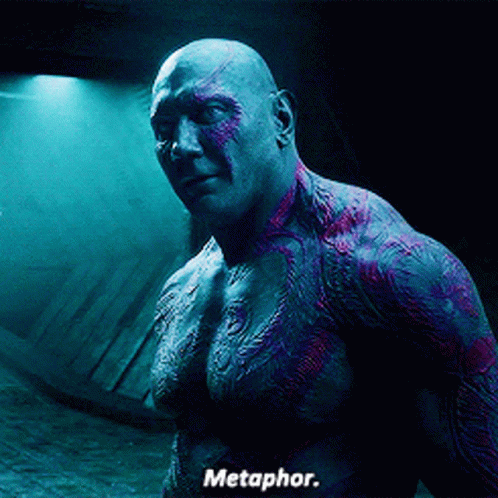
I have also literalized the Mesopotamian cosmology of a three-tiered universe with a solid vault in the heavens, and a flat disc earth supported on the pillars of the underworld, the realm of the dead.
Thanks to Brian Godawa, the words "metaphor" and "literalized" annoy me.
I'd hate to rain on your parade but Mesopotamian mythology isn't the only one who had a three-tiered universe.
Below is an image of the Hebrew cosmology:
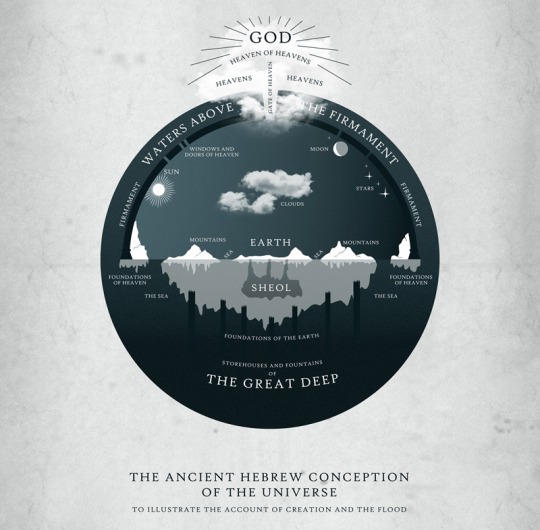
It also has an universe that has three levels: heaven, earth, and the underworld. The earth is a flat disc floating on water with heaven above it and the underworld below it.
If one takes a second look at the picture, you will notice that there are pillars or the foundation of the earth.
In conclusion, Mesopotamian mythology isn't the only one to depict a universe as being composed of three levels.
This appears to be the model assumed by the Biblical writers in many locations (Phil. 2:10; Job 22:14; 37:18; Psa. 104:5; 148:4; Isa. 40:22),

Jewish people have their own culture. They would not be using Mesopotamian mythology as their yardstick.
so I thought it would be fascinating to tell that story within that worldview unknown to most modern westerners.
You mean a different concept or an idea can be interesting? What a mind boggling revelation!
If I didn't know any better, I’d believe Godawa when he said telling a story from another culture’s point of view would be “fascinating.”
Yet it is painfully obvious that if something doesn't conform to his beliefs, it must be a vile falsehood created by malevolent beings.
The purpose of the Bible is not to support scientific theories or models of the universe,
Actually, the Big Bang Theory does not conflict with the story of creation.
but to tell the story of God through ancient writers. Those writers were people of their times just as we are.
Which is why the absence of Jewish culture is jarring.
Especially since all the "good" characters are Calvinists.
I have also woven together Sumerian and other Mesopotamian mythology in with the Biblical story,
It is randomly inserted (ex: Pazuz) or the deities are evil fallen angels who are destroying Family Values™ and Corrupting the Children™.
but with this caveat:
"Anything that doesn't conform to my worldviews must be the lies devised by Satan."
Like C.S. Lewis,
Did he compare himself to C.S. Lewis?
….
……….
…………………….

It is like trying to compare M. Night Shyamalan to Alfred Hitchcock.
Even though one is a hack while the other one is a talented creator.
I believe the primary purpose of mythology is to embody the worldview and values of a culture.
Aside from helping people to understand the world around them and giving them answers to timeless questions such as: Is there life after death? Why does evil exist?
Mythology also provides a form of entertainment and ensures that certain traditions survive.
But all myths carry slivers of the truth and reflect some distorted vision of what really happened.

This reeks of ethnocentrism!
Sumer’s Noah was Ziusudra, Babylon’s Noah was Utnapishtim, and Akkad’s was Atrahasis. The Bible’s Noah is my standard.

I'll bring this up if anyone tries to claim that Noah Primeval isn't preachy and ethnocentric.
So my goal was to incorporate real examples of ANE history and myth in subjection to that standard in such a way that we see their “true origin.”
....
You know what?
If someone wrote a Wiccan based fantasy series that demonized Christianity, he would be outraged.
Godawa reiterates his "speculation" that the deities were fallen angels with superhuman abilities that once belonged to God's divine council.
See the appendix at the back for my defense of this interpretation from the Bible.

I'm not in the mood to read a lengthy appendix that reads like you giving yourself a giant pat on the back. Perhaps that will be a future snark.
Lastly, I have permitted myself to use extra-Biblical Jewish literature from the Second Temple period as additional reference material for my story.
In other words...
He gave himself permission to steal and vandalize a different culture. Isn't that charming?
I use these ancient Jewish sources
I bet many people wished you hadn't.
not because I consider them completely factual or on par with the Bible,
"They are complete heresy. Instead, believe in the teachings of John Calvin."
but simply in an attempt to incarnate the soul of the ancient Hebrew imagination in conversation with the text of Scripture
Like the Yeti, the Hebrew imagination has yet to be found.
rather than imposing my own modern western one upon the text.
...
............
............................

I am within the tradition of the Church on this since authors of the New Testament as well as early Church Fathers
Just "Church Fathers"?

Christianity also had Church Mothers.
To name a few: Mary Magdalene, Phoebe, Junia, Lydia, Eudia, Thecla, Syntyche, and Prisca.
and other orthodox theologians in church history respected some of these ancient manuscripts as well.
While the author did the opposite.
Many of these texts from the Second Temple Period, such as Jubilees, Testaments of the Twelve Patriarchs or The Life of Adam and Eve, and others found in the Pseudepigrapha, were creative extrapolations of the Biblical text.
I guess the word of the day is "extrapolations".
Extrapolation is defined as "to predict by projecting past experience or known data" or " to infer from values within an already observed interval."
I find it rather disgusting to imply that the Midrash is a product of guesswork or estimates.
Which means whatever the author's personal beliefs are founded in facts.

These were not intended to deceive or overturn the Bible,
Notice the word "intended".
It infers that the writers weren't deliberately telling lies.
It just happens that they were spreading falsehoods.
but rather to retell Biblical stories with theological amplification and creative speculation

You see, humans are a curious species. We don't like unanswered questions.
Therefore, we come up with a possible answer or an explanation for a particular event.
The purpose of the Midrash is to provide explanations or to give a story details.
Ever wondered who was Cain's wife? According to Book of Jubilees, she was Cain's sister and her name is Awan.
while remaining true to their interpretation of the Scriptures.

They weren't providing interpretations to Mesopotamian mythology.
In short, I am not writing Scripture.
Normally, I would believe this.
But subsequent interviews and podcasts along with the preachy messages written in the story belies this statement.
I am not even saying that I believe this is how the story might have actually happened.
Remember when I said to keep something in mind because it will be significant later on?
Well, now it is important.
This statement and the words "Inspired by True Events" are contradictory.
I am simply engaging in a time-honored tradition of the ancient Hebrew culture:
No, no, no!
Do not pass go. Do not collect $200!
I am retelling a Biblical story in a new way to underscore the theological truths within it.

Godawa only wants to associate with ancient Hebrew culture when it elevates him as a writer and his stories.
From his remarks, it is obvious that he regards the Midrashes as being subpar bodies of work that will mislead undiscerning readers.
That being said, that won't stop him using such texts in order to receive praise for his "creativity" and be commended in scholarly circles for using Jewish texts.
This mentality is similar to Rick Riordan's.
In case anyone doesn't know...
Rick Riordan is best known for writing the Percy Jackson series which retold Greek mythology. He then wrote a series based on Norse mythology called Magnus Chase and the Gods of Asgard.
Both series were a hit and he greatly profited from these stories.
After sometime, Riordan made the following statements:
“I didn’t realize some people still worship the old Viking gods. Very strange, and a little scary…In my opinion, the more you learn about the mythology, the more impossible it is to take it seriously as a religion… after you’ve met Odin and Thor in the stories, who in their right mind would ever want to worship them?”
" I love Greek myths, but why anyone would want to worship the Greek pantheon is beyond me. "
"It’s strange to think anyone would still worship the Olympians seriously."
Early in the book, the character Chiron draws a clear distinction between God, capital-G, the creator of the universe, and the Greek gods (lower-case g). Chiron says he does not wish to delve into the metaphysical issue of God, but he has no qualms about discussing the Olympians because they are a “much smaller matter.”
Unsurprisingly, this offended many polytheists.
You might be wondering: what's my point?
To put it simply? Both writers profited from incorporating different mythologies into their stories.
One writer made disparaging remarks about individuals who believe in these deities after becoming a best selling author.
While the other barely concealed their disdain for the source material they used that garnered their popularity and praise from critics.
In conclusion?
Don't build your career on writing stories using different mythologies and deride the believers of said mythos or the very thing that puts money in your bank account.
Then wonder why some people think you are a horse's ass.
The Biblical theology that this story is founded upon is provided in several appendixes at the back of the book for those who are interested in going deeper.
First of all..
Stop peddling your friggin' appendixes.
We get it.
It has citations.
Which means it is supposed to be scholarly...
Therefore... It is deep and elevated literature.
The beauty of fiction
Um, no.
It is not all beautiful.
It can also be bland or terrible.
And in some cases, it is deeply disturbing.
is that we can make assumptions regarding uncertain theological and historical information
Yes, you can.
Up to a point.
The moment when you insist theses assumptions or personal beliefs are based in fact...
Writers like Philippa Gregory and Brian Godawa are born.
without having to prove them one way or another.
You know what also doesn't require proof?
Faith.
The story requires only that we establish continuity within the made up world,

It is called the suspension of disbelief.
and accepting those assumptions for the sake of the story does not imply theological agreement.
Normally, yes.
But this series makes it abundantly clear that if you don't agree with the political and theological beliefs...
At best, you are country pumpkin. (Yes, he does equate them to being stupider than Ana Steele.)
At worst, you are not only a moron but a depraved degenerate as well.
So, sit back and
Reach for the booze because you are going to need it. Also, make sure that the vomit bucket is in front of you.
let your imagination explore the contours of this re-imagined journey
And before long, wishing that you never did and longing to depart for the Undying Lands.
of one of the most celebrated religious heroes across all times and cultures.
And by the end, you want:
To repeatedly punch the "good" characters in the throat and stab them in the groin. Especially Noah.
The villains to shut up and fuck off. Because they are what a thirteen years old boy would think is edgy. Especially if said boy was also a Bible thumper.
1 note
·
View note
Text
Natural Gas NOW Picks of the Week – June 30, 2018
Tom Shepstone Shepstone Management Company, Inc.
…
…
Natural Gas NOW readers pass along a lot of stuff every week about natural gas, fractivist antics, emissions, renewables, and other news relating to energy. As usual, emphasis is added.
Lisa Baker Asks: So, What’s Your Problem, Maya?
Pennsylvania Senator Lisa Baker really knows how to expose the hypocrisy of fractivist policies. We saw that when she forced DEP Secretary Patrick McDonnell to all but admit there was is no basis whatsoever for the DRBC fracking ban his boss is pushing. Now, she’s done it again with Maya van Rossum, the Delaware Povertykeeper. Maya is lobbying heavily against Baker’s SB 1189, which would declare the ban a taking and demand compensation for impacted landowners. Lisa has written Maya an important letter. Check it out:
Contrary to the contentions contained in your recent letter to state Senators, the provisions of Senate Bill 1189 are neither “dangerous” nor “uninformed.” It is striking that these accusatory words are used without illustration or substantiation. This proposal is the result of extensive research and consultation, and in my opinion, consistent with recent decisions on questions of eminent domain and with the grants of power to various entities,
As you point out, the focus of Senate Bill 1189 is appropriate and just compensation for landowners. However, I am afraid the ‘lack of correct interpretation” in this matter is on the part of the Delaware Riverkeeper Network.
To be clear, this is not a debate about whether or not the Delaware River Basin Commission (DRBC) can make decisions impacting land use, water resources and property. Nor is it being suggested that the DRBC lacks the ability to enact regulations according to its established rules and processes.
Nowhere does this legislation restrict the DRBC’s ability to implement a ban on high volume hydraulic fracturing, or to take any action it deems warranted, with respect to water quality and quantity. The bill simply states that a ban is a taking. and appropriate and just compensation must be paid.
It is only fair to make this determination in advance of any final decision. If we wait and allow the courts to decide, the determination of a taking will almost certainly be made later — after a ban is instituted and landowners are harmed. It is the legislature’s right and duty to let citizens and the DRBC know now what the effect of the ban will be…
If my legislation does not succeed in the current dispute, litigation will almost surely commence raising the same issues. That will have the certain effect of increasing costs and extending the period of uncertainty. Your organization has every right to assert its interests and express its views. That you do so constantly is highly commendable. But I cannot agree with your assumptions and conclusions about the power and wisdom of the DRBC.
The beauty of this response is simply this; it confronts Maya with the reality that there is a major cost associated with the proposed DRBC fracking ban. Maya wouldn’t opposes compensation, as she is now, unless she thought it was so expensive as to be a threat to the feasibility of enacting a ban. By doing so, and calling basic fairness “dangerous” and “uniformed” she’s now admitted she’s completely at ease with imposing that cost on landowners. Rather than spread the cost across the 15-17 million people she claims would benefit, she proposes to impose it on a few hundred farmers who need the money. Thank you, Lisa Baker, for illustrating what a thief in the night the Delaware Povertykeeper really is.
Powelson Is A Big Loss at FERC – Was It Over Policy?
The disappointing news came out this week that FERC Commissioner, Robert Powelson, who the Pennsylvania gas industry worked so hard to get onto FERC and who has done a great job, is already on his way out. Powelson was an outspoken skeptic of Energy Secretary Rick Perry’s ill-advised proposal to prop up nuclear power plants (and coal) with subsidies, a policy undistinguishable from those of Governor Corruptocrat and Phil “the Panderer” Murphy, both of who would, apparently, rather subsidize nuclear than accept any more gas to ensure subsidized renewables don’t destroy our ability to ensure baseload generation capacity (as in California, Germany, et al). Here’s how the Washington Post reports it on one of their blogs:
Powelson out: Federal Energy Regulatory Commission member Robert Powelson announced Thursday he will be leaving his role at the commission in August to become the chief executive and president of the National Association of Water Companies. Powelson, a Republican, was confirmed by the Senate last August after he was nominated to the commission by Trump in May 2017.
What his departure means: Powelson had spoken out about the Trump administration’s proposed use of emergency actions to bolster coal and nuclear plants. Trump could choose a replacement more amendable to what the Energy Department wants to do to prop more those financially ailing generators.
But: Environmentalists used the announcement to push for more FERC commissioners who would consider the climate impacts for more natural gas pipelines. “Powelson’s abrupt resignation doesn’t change the fact that FERC itself needs a massive change,” the Sierra Club’s Mary Anne Hitt said.
In the meantime: Powelson’s absence will be harder for FERC to do its day-to-day work with only four commissioners.
Not good. Will a new FERC appointment take as long as last time? Will the new commissioner buy into the same subsidy-ridden stupid energy policies that have so distorted markets already and that Perry seems to think are smart or best corrected by more stupid subsidies? Or, will a new FERC commissioner cave to Sierra Club madness? This a big loss.
On the Other Hand
Given the above story it’s hard to be impressed with Rick Perry. On the other hand, he did say something fascinating the other day about New York, according to the Washington Examiner:
Energy Secretary Rick Perry on Thursday warned the leaders of Northeast states who are trying to block natural gas pipelines that they will face a “real reckoning” of higher energy costs and vulnerabilities in their power grid.
“The citizens of New York are paying more for energy,” Perry said during a panel session at the World Gas Conference in Washington. “Their health and well-being is being put in jeopardy. If a polar vortex comes into the northeast part of the country, or a cyberattack, and people literally have to start making decisions on how to keep their family warm or keep the lights on, at that time, the leadership of that state will have a real reckoning. I wouldn’t want to be the governor of that state facing that situation.
“We have to have conversation as a country, is that a national security issue that outweighs the political concerns in Albany, NY?” Perry added.
Hmmm….
Doesn’t Look New Yorkers Will have to Worry About Cynthia Nixon
It’s seldom your enemies you have to worry about, but, rather, your stupid friends:
Don’t you love it? There’s nothing like a half-asleep endorsement from some has-been con artist to get your campaign going. And, why are Josh and Rick wearing the same glasses?
The post Natural Gas NOW Picks of the Week – June 30, 2018 appeared first on Natural Gas Now.
https://www.shaledirectories.com/blog/natural-gas-now-picks-of-the-week-june-30-2018/
0 notes